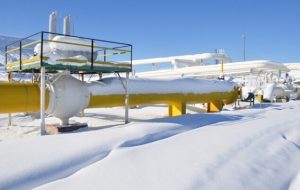Gas consumption soars by 130 million cubic meters
TEHRAN – Iran’s gas consumption in the residential and commercial sectors reached 582 million cubic meters on Sunday, a significant increase compared to the same day last year, according to the National Iranian Gas Company (NIGC). This represents an increase of 130 million cubic meters compared to the same day in 2023, when consumption was


TEHRAN – Iran’s gas consumption in the residential and commercial sectors reached 582 million cubic meters on Sunday, a significant increase compared to the same day last year, according to the National Iranian Gas Company (NIGC).
This represents an increase of 130 million cubic meters compared to the same day in 2023, when consumption was notably lower.
In response to the cold front sweeping across the country, gas consumption is expected to rise further. “With the arrival of the cold front and a drop in temperatures, gas consumption in the residential sector is expected to reach 600 million cubic meters by the end of the week,” said Mohammad Kooshki, director of the National Gas Network Control Center.
Gas consumption in Iran tends to surge during the winter months due to the country’s heavy reliance on natural gas for heating. As temperatures drop, residential and commercial gas usage spikes, putting added pressure on the national grid. The increase in demand for heating, particularly in the northern and central regions of the country, leads to higher consumption rates in both urban and rural areas.
In previous years, Iran has faced challenges in meeting this winter demand, often leading to concerns about supply shortages and the need for efficient energy management. The government has been working to balance gas distribution to ensure that essential services are maintained while avoiding shortages for consumers.
The seasonal rise in gas consumption also highlights the ongoing need for infrastructure upgrades and energy conservation measures. With a large portion of Iran’s energy production dedicated to domestic use, particularly for heating, maintaining stable supply during the cold season remains a key challenge for the energy sector.
EF/
